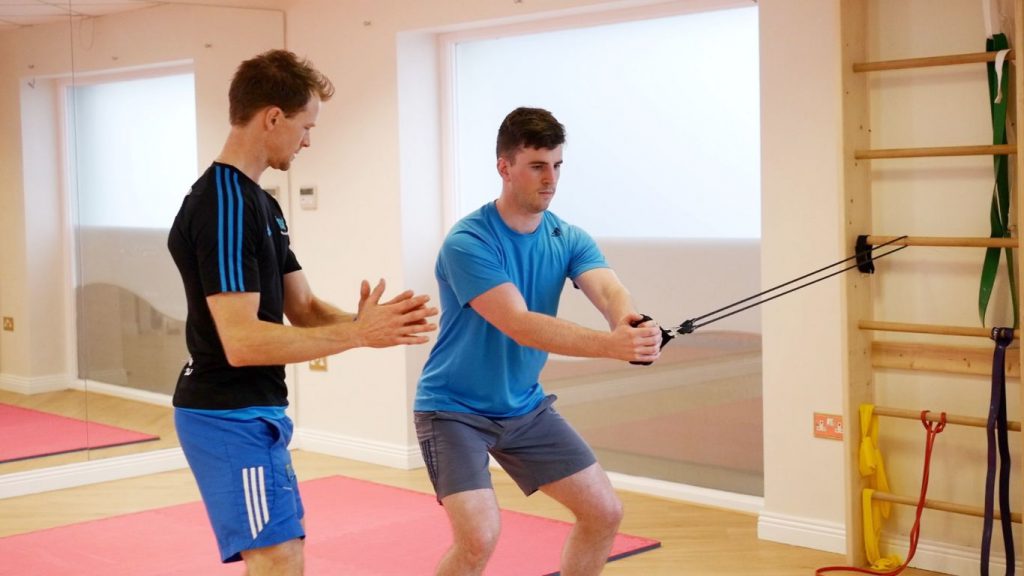
The sensation of “tight” muscles can often mean different things for people. Descriptions can vary:
- they aren’t able to stretch very far
- their sensation of their muscles when they stretch is “tight”
- a vague sense of achiness/discomfort.
There is no real scientific definition of “tightness”. “Tight” muscles can be placed into 2 groups. Muscles (or a group of muscles) that:
- Have a reduced range of movement due to their short length etc. (reduced flexibility)
- Are hypertonic (in an ongoing state of contraction/spasm)
Although many people have reduced flexibility, I would say most complaints of “tightness” fall into the second category. So why do muscles fall into this ongoing state of spasm?
The answer is simple: They are weak. When muscles are not able to handle much load, they are easily overloaded and will react by remaining in a constant state of contraction/spasm.
This happens every day: are you sitting down at the desk or computer for hours on end?

If so, you will be constantly loading your neck/shoulder muscles; this will give you that vague sense of discomfort/”tightness” you probably are feeling.
This “tightness” can be very frustrating and generally lasts for a long time, unless you do something about it.
This example is how constant low loads can cause this feeling of tightness and even ongoing pain from this muscle spasm.
This can also happen from an acute event that overloads a muscle leading to similar results.
An example of this is when you finally get around to doing that large chuck of housework/gardening you’ve been meaning to do for a while and the next day your shoulders or maybe your back will start to feel tight; this can then continue for days/weeks and stop you from engaging in activities you enjoy doing or simply put you off your gardening!
Many of these tasks can cause this feeling of “tightness”.
Your muscles can only tolerate the load they’re trained for.
How many office workers train their muscles for this daily load?
So, how do we alleviate this issue in all of these cases? We gradually increase the load tolerance of the tissue (muscle strength).

Another cause of this muscle spasm/weakness can be pain.
When in pain, your body can go into a protective state of muscle spasm.
Specific loading/strengthening again is the answer (or one of them at least).
‘My Traps are so tight, I’ve been stretching them for weeks’ said Mick.
Obviously muscles can have reduced flexibility too. However, again this may be caused from them being in a contracted state (spasm).
So rather than stretching these muscles for weeks/months and having minimal results like Mick, a progressive loading program may have far superior results in a short space of time.
Reduced muscle flexibility (or range of movement) may also be due to the short muscle length and other complex biomechanical and psyco/physiological factors.
This is where more specific flexibility/mobility exercises come into play.
Some types of strengthening can make matters worse. However, specific types of strengthening exercises have also shown to increase flexibility.
So what is the take home? If your muscles feel “tight” it can be due to weakness, pain and/or reduced flexibility, so stretching them may not be the right answer.
Each situation is individual and needs to be assessed independently.
At APC, we will assess what is causing this feeling of “tightness” and take you through an individualised rehab program to work on your flexibility and/or strength.
Why not apply for a FREE Strategy Session with us by clicking the button below: